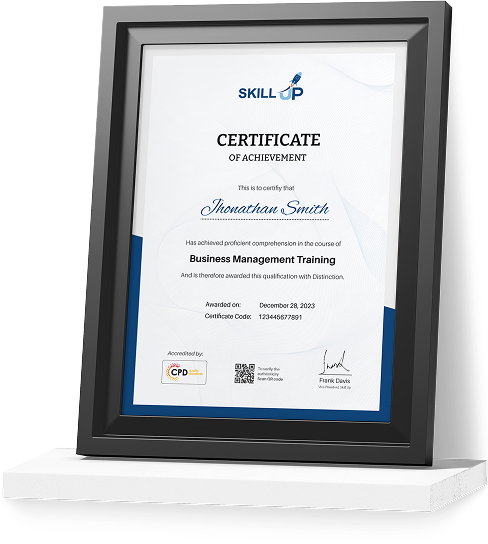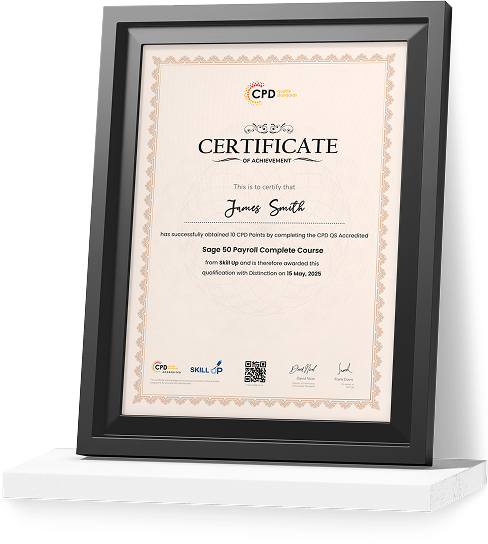 Level 3 Diploma in Coaching & Mentoring
Level 3 Diploma in Coaching & Mentoring
Level 3 Diploma in Coaching and Mentoring provides learners with a structured pathway to develop confidence and effectiveness in guiding others towards success. Through this level 3 coaching course, learners explore the foundations of communication, trust, and structured goal-setting to enhance personal and professional growth. The programme introduces different approaches to support individuals in achieving their ambitions while reinforcing the importance of constructive feedback. Designed to blend theory with strategies, the level 3 coaching and mentoring online curriculum ensures flexibility for learners in the UK and beyond. Whether in London or remote, the level 3 diploma in coaching and mentoring online equips learners with methods to overcome challenges, motivate teams, and inspire continuous improvement.
 Course Description
Course Description
Coaching and mentoring are recognised as vital elements in professional development, leadership, and personal achievement. The Level 3 Diploma in Coaching and Mentoring is a dynamic learning journey that empowers individuals to support growth in others while also advancing their own capabilities. By progressing through modules that address trust, feedback, roadblocks, and goal-setting, this level 3 coaching course creates an engaging experience for learners.
The course is designed for those who wish to pursue a rewarding route into people development, whether in corporate roles, education, or community leadership. Through accessible delivery, the level 3 coaching and mentoring online pathway enables learners across the UK to engage with structured training while balancing other commitments. With dedicated modules on differences between coaching and mentoring, it offers valuable insights that refine communication and leadership qualities.
Whether you are situated in London or another part of the UK, the level 3 diploma in coaching and mentoring london option makes this course highly relevant for career advancement. Flexible study ensures you can progress at your own pace while still meeting the rigorous requirements of the level 3 diploma in coaching and mentoring online. By the end of the programme, learners emerge prepared to foster development, inspire resilience, and encourage meaningful transformation.
 Learning Outcome
Learning Outcome
- Demonstrate the ability to set and evaluate achievable objectives in varied contexts.
- Apply mentoring and coaching frameworks to support growth and adaptability.
- Build effective trust-based relationships that enhance collaboration and outcomes.
- Implement strategies to address and remove barriers to progress.
- Provide constructive, motivating feedback that inspires lasting improvement.
 Who Is This Course For?
Who Is This Course For?
- Individuals seeking structured pathways into leadership roles.
- Professionals aiming to strengthen interpersonal and motivational strategies.
- Team leaders looking to guide and support organisational performance.
- Career changers exploring opportunities in coaching and mentoring.
- Learners interested in flexible online study options, including those in London.
 Certificate of Achievement
Certificate of Achievement
Earn Your Accredited Certificate with Transcript
Save 20% with the coupon code SKILL20

Show Your Certified Identity with a CPD-QS Certificate
Perfect for employers, clients, or academic verification.

 Career Path
Career Path
- Learning and Development Manager – £45,000+
- Human Resources Business Partner – £48,000+
- Leadership Development Specialist – £52,000+
- Corporate Training Consultant – £55,000+
- Senior Mentor / Coach (Corporate Sector) – £50,000+
- Organisational Development Manager – £60,000+
 Frequestly Asked Questions
Frequestly Asked Questions
Mentoring and coaching are often linked but serve distinct purposes. Firstly, mentoring is typically long-term, focusing on overall career development, while coaching is usually short-term and task-oriented. Secondly, mentoring often involves a senior professional guiding a less experienced individual, whereas coaching does not require hierarchy and centres on performance improvement. Thirdly, mentoring is more relationship-driven, while coaching is results-driven with measurable objectives. In the UK workplace, both methods are vital but used differently depending on employee needs.
The 5 C’s of mentoring are: Competence, Confidence, Connection, Character, and Compassion. These elements highlight what a mentor should foster in a mentee. For instance, UK mentoring programmes in corporate or educational settings use these principles to encourage holistic personal and professional growth.
The 5 R’s of coaching include Rapport, Roles, Responsibilities, Results, and Reflection. This model is often applied in UK coaching practice to build trust, set clear expectations, focus on outcomes, and review progress effectively. These stages ensure the coaching relationship is structured and delivers measurable benefits.
In a UK workplace, a coaching example might involve a line manager helping an employee improve presentation skills before a client meeting. A mentoring example could be a senior colleague guiding a junior employee over time with advice on career advancement. Both approaches complement one another, improving staff development and organisational success.
The 7 P’s of coaching are Purpose, Preparation, Process, Performance, Progress, Persistence, and Partnership. Widely recognised in the UK business and education sectors, this framework ensures coaches provide structured sessions that remain goal-focused while also nurturing long-term development.
The 4 C’s of mentoring are Consultation, Collaboration, Commitment, and Communication. UK organisations implementing mentoring schemes often apply these to build strong professional bonds and to encourage mentees to develop confidence in their roles.
The 5 pillars of mentoring are Trust, Guidance, Support, Feedback, and Growth. These pillars underpin effective UK mentoring programmes, ensuring that mentees feel supported while receiving constructive feedback to reach their career and personal objectives.
In English grammar, the four types of sentences are Declarative, Interrogative, Imperative, and Exclamatory. These forms are taught across UK education to improve communication skills and writing clarity. For example, declarative sentences state facts, while interrogative ones ask questions.
The 3 A’s of mentoring are Availability, Active Listening, and Authenticity. UK mentoring frameworks highlight these as essential qualities for mentors, ensuring they provide genuine support and are consistently approachable to their mentees.
Curriculum
-
Module One – Getting Started
00:30:00
-
Module Two – Defining Coaching and Mentoring
00:30:00
-
Module Three – Setting Goals
01:00:00
-
Module Four – Understanding the Realities
01:00:00
-
Module Five – Developing Options
01:00:00
-
Module Six – Wrapping it All Up
00:30:00
-
Module Seven – The Importance of Trust
01:00:00
-
Module Eight – Providing Feedback
00:30:00
-
Module Nine – Overcoming Roadblocks
01:00:00
-
Module Ten – Reaching the End
00:30:00
-
Module Eleven – How Mentoring Differs from Coaching
00:30:00
-
Module Twelve – Wrapping it Up
00:30:00
-
Level 3 Diploma in Coaching & Mentoring- Activities
-
Mock Exam- Level 3 Diploma in Coaching & Mentoring
00:20:00
-
Final Exam- Level 3 Diploma in Coaching & Mentoring
00:20:00
-
Order Your Certificate
Offer Ends in

-
Duration:9 hours, 10 minutes
-
Access:1 Year
-
Units:16



.png) 4 Reviews
4 Reviews 38 Students
38 Students
 All
Courses for £49
All
Courses for £49


